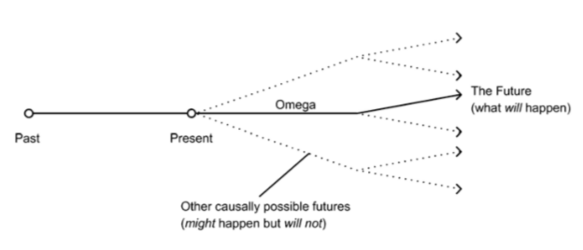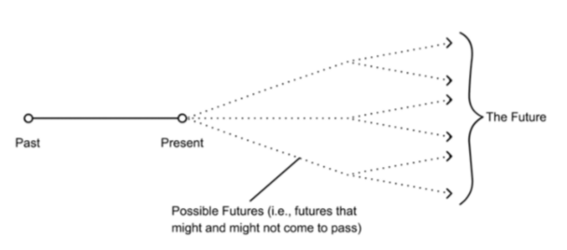It was a bit weird that @Null jumped to the conclusion of Omnicient = predestination. God's omniscience is not in dispute even among those who do completely accept free will as a doctrine.
I agree that omniscience does not necessarily imply predestination.
But what is in dispute is
precisely what does omniscience imply?
If the future is to some degree "open" (aka unsettled), then divine omniscience entails the denial of exhaustively definite foreknowledge.
The colloquial understanding of what "free will" is necessarily requires your actions to be undecided until you take them.
If you're undecided between option A or B, but an omniscient god knows you'll pick A before you've decided, you can never actually pick B. Picking B, and free will by extension, are both necessarily illusions.
The first part of that is true.
The second part is not
necessarily true. See "open theism".
Whether open theism is compatible with Christianity is controversial.
In short,
open theism posits that since God and humans are free, God's knowledge is dynamic and God's providence flexible. Whereas several versions of
traditional theism picture God's knowledge of the future as a singular,
fixed trajectory,
open theism sees it as a plurality of branching possibilities, with some possibilities becoming settled as time moves forward.[8][9] Thus, the future, as well as God's knowledge of it, is
open (hence, "open" theism).
The future is "closed"

The future is "open"

In the "open future view", as well as in open theism in general,
the future can and does change.
Open Theism Model:
1. Open theism says the future is at least partly open. Meaning that while some things are predetermined, other things depend on the actions of free individuals.
2. Open theism claims God's omniscience reflects everything that can be known, including all possible outcomes and potential futures.
3. God knows all outcomes of the choices that you might make,
but God does not know what you will choose until after you choose it. This gives you free will and leaves the future partially "open".
In this model, God knows all the potential lives that I might live, all the choices I might make, all the tragedies and triumphs that might await me, but
does not know whether or not I will go hiking tomorrow.
He doesn't know what I will choose tomorrow because at least
some statements about future contingents
presently fail to be either true or false, and thus are
presently unknowable.
...
...






